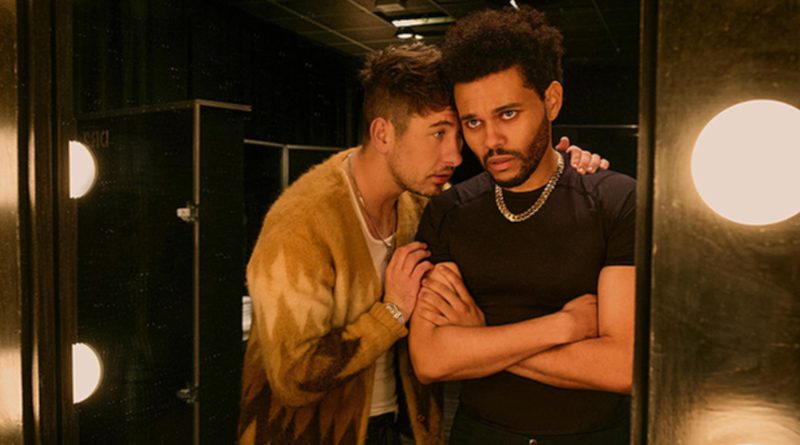Hurry Up Tomorrow Review: This Otherwise Visually Striking Psychological Drama Drowns into a Hollow Vanity Project
For the first 20 minutes in Hurry Up Tomorrow, the movie got me hooked with an intriguing start throughout its opening credits: A voicemail from Abel Tesfaye’s — playing the fictionalised version of himself — unnamed girlfriend (Riley Keough) is breaking up with him amid his concert preparation. He tries to remain focused, coupled with encouragement from his manager, Lee (Barry Keoghan) and continues to put on his game face.
He eventually shows up in front of the highly enthusiastic crowd with spotlights shining all over the stage, but Trey Edward Shults’ camera mostly focuses on Abel starts performing his first song, “Wake Me Up”. It was a track from his sixth titular studio album, released earlier this year, with the feature-length Hurry Up Tomorrow serving as a companion piece. Elsewhere in a seemingly unrelated event, the movie introduces a young woman named Anima (Jenna Ortega) who committed arson after setting a house on fire before getting into her truck and heading for Abel’s concert. Who is she? Why does she burn down the house? Is she crazy?
Those are some of the questions that linger in my mind as I watch the movie. Shults also showcases his flair for engrossing visuals, namely the boxy aspect ratio, which visually conveys Abel’s agitated state of mind and the trance-like, 360-degree camerawork within the interior of a moving limo. For a while there, Hurry Up Tomorrow looks promising while making me anticipate the connection between Abel and Anima. The two eventually cross paths during his concert, and you have to wait to see them together around the 40-minute mark. They get together and spend a night in his hotel room.
Then, it gets bizarre, particularly during the thriller-like third act straight out of Misery. While Shults knows well how to bring out the best in his music video-style visual styling, Hurry Up Tomorrow remains a huge missed opportunity. Sure, Jenna Ortega does her best playing the rebellious type that we have grown accustomed to, but her character is sadly superficial. The same also goes for the otherwise talented Barry Keoghan, who plays Abel’s manager and longtime friend, Lee, but is ultimately defeated by a sketchily written character.
Now, for Abel Tesfaye, best known for his stage moniker as The Weeknd, is no doubt one of the best R&B singers of his generation. I love most of his songs, but as an actor, he still has a long way to go to establish himself as the one to look forward to. Not that he lacks trying here, but like his previous acting role in HBO’s The Idol, he comes across as emotionally hollow.
I find it hard to root, let alone sympathise with his sorrow for being unable to get over his painful breakup. He has trouble moving on, even with Lee continuously trying his best to comfort him through moral support and providing him with whatever necessary drugs to help him get by.
Then comes a young woman named Anima, who’s a fan of his songs, and the night they hook up together turns from blissful to a nightmare that he doesn’t see coming. A story like this, with the protagonist going through such an ordeal, works better if the actor manages to inhabit the role deep into the emotional psyche. Too bad Abel isn’t the actor who has yet to reach the required level of acting.
The movie also suffers from a lack of character development, and not to mention, the second half meanders a lot like it’s going in circles, to the point it overstays its welcome. By the time Shults tries to jolt us with a Misery-like finale, complete with Ortega’s Anima going unhinged, all I care the most is wanting the movie to be over.





